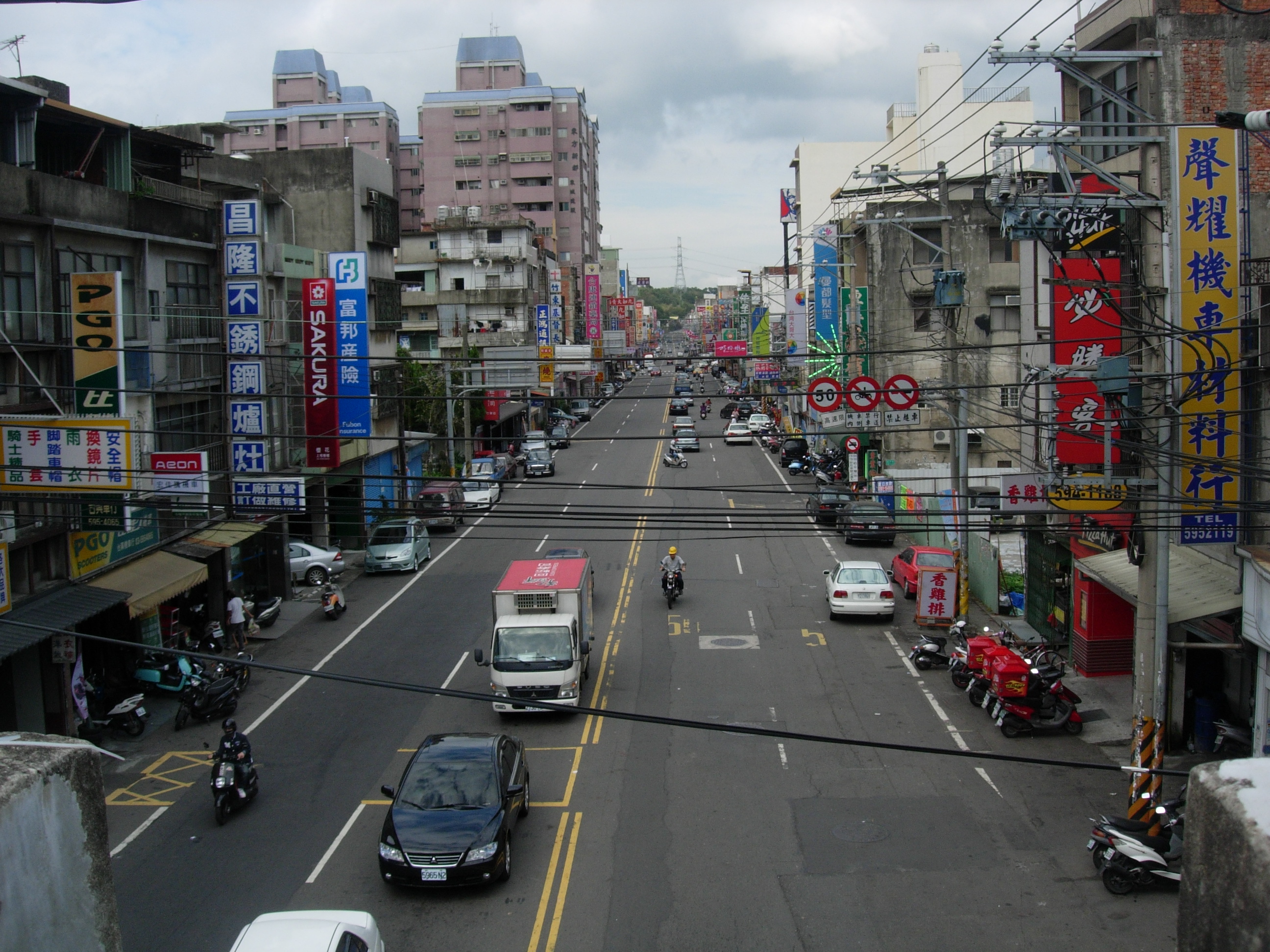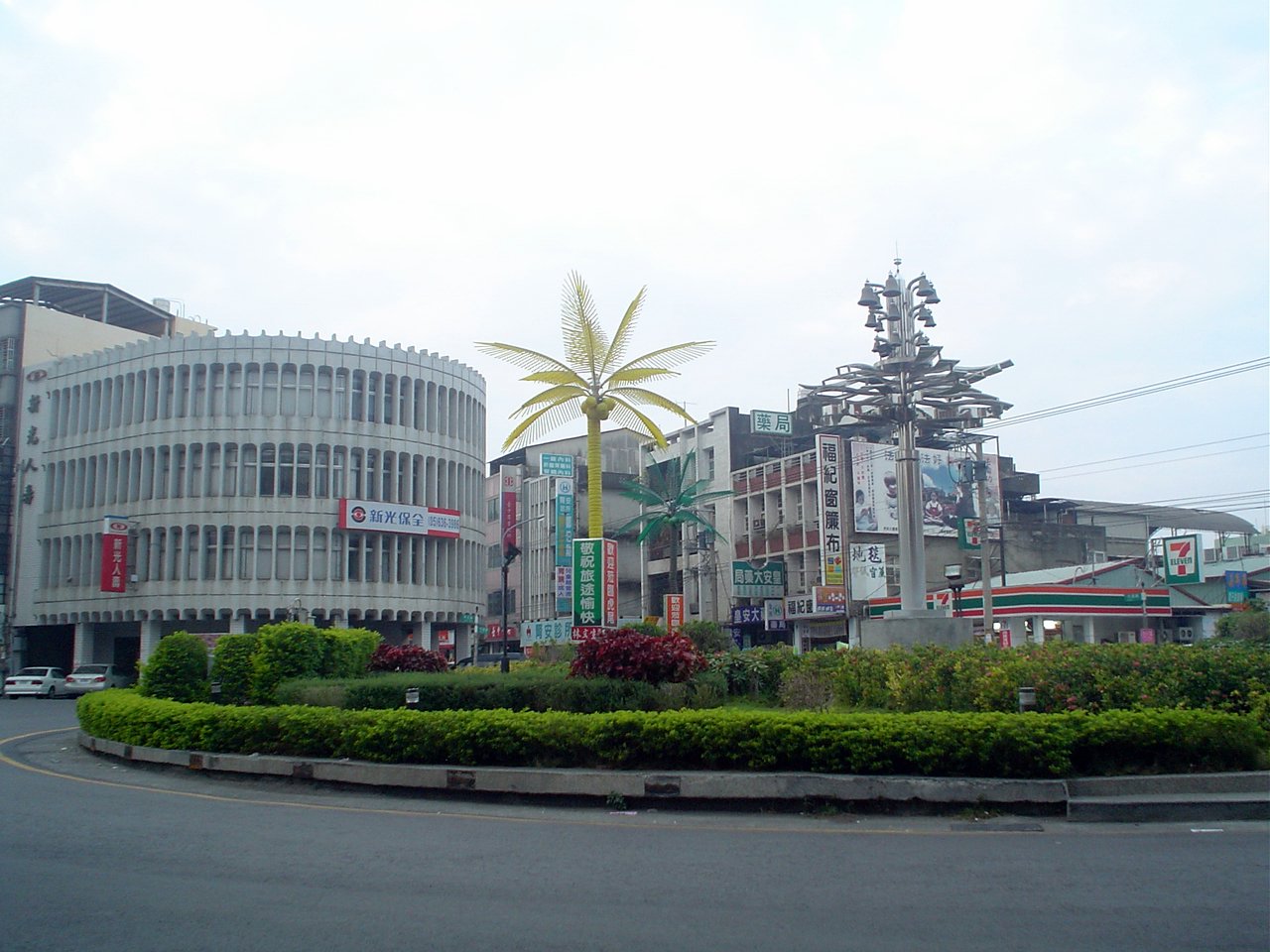|
Erlin, Changhua
Erlin Township () is an urban Township (Taiwan), township in Changhua County, Taiwan. Geography With an area of 92.8578 square kilometers, it is the largest township in Changhua County. As of January 2017, its population was 51,487, including 26,533 males and 24,954 females. History During the Dutch Formosa, Dutch period, the area was under the administrative region of Favorlang (modern-day Huwei, Yunlin). Present-day Erlin was probably at or near ''Gierim'', "one of the primary centers for Sino-aboriginal trade and a favorite haunt of pirates and smugglers." Administrative divisions Fengtian, Donghe, Nanguang, Xiping, Beiping, Zhongxi, Guangxing, Xiangtian, Waizhu, Xinghua, Dongxing, Houcuo, Dingcuo, Zhaojia, Zhenxing, Wanxing, Yongxing, Xizhuang, Meifang, Hualun, Wange, Dongshi, Dayong, Yuandou, Xidou, Donghua and Fufeng Village. Tourist attractions * Renhe Temple Transportation Bus station in the township is Erlin Bus Station of Yuanlin Bus. Notable natives * Liu Wen-hsiu ... [...More Info...] [...Related Items...] OR: [Wikipedia] [Google] [Baidu] |
Township (Taiwan)
Townships are the third-level administrative subdivisions of counties of the Republic of China (Taiwan), along with county-administered cities. After World War II, the townships were established from the following conversions on the Japanese administrative divisions: Although local laws do not enforce strict standards for classifying them, generally urban townships have a larger population and more business and industry than rural townships, but not to the extent of county-administered cities. Under townships, there is still the village as the fourth or basic level of administration. As of 2022, there are totally 184 townships, including 38 urban townships, 122 rural townships and 24 mountain indigenous townships. 174 townships with 35 urban and 118 rural townships are located in Taiwan Province and 10 townships with 3 urban and 4 rural townships are located in Fujian Province. Penghu and Lienchiang are the only two counties that do not have urban townships. Statist ... [...More Info...] [...Related Items...] OR: [Wikipedia] [Google] [Baidu] |
Changhua County
Changhua County (Mandarin Pinyin: ''Zhānghuà Xiàn''; Wade-Giles: ''Chang¹-hua⁴ Hsien⁴''; Hokkien POJ: ''Chiang-hòa-koān'' or ''Chiong-hòa-koān'') is the smallest county on the main island of Taiwan by area, and the fourth smallest in the country. With a total population of 1.3 million, Changhua County is the most populous county in the Republic of China. Its capital is Changhua City and it is part of the Taichung–Changhua metropolitan area. History Early history There are 32 prehistoric burial sites in Changhua that date back 5000 years. The original name of the area was ''Poasoa'' (), so-named by the local indigenous tribes. Poasoa used to be inhabited primarily by the Babuza people, who have since been mostly assimilated by the Han people. Qing dynasty Qing rule in Taiwan began in 1683, and in 1684, Taiwan Prefecture was established to administer Taiwan under Fujian Province. The prefecture consisted of three counties: , and Zhuluo. Poasoa and modern- ... [...More Info...] [...Related Items...] OR: [Wikipedia] [Google] [Baidu] |
Taiwan
Taiwan, officially the Republic of China (ROC), is a country in East Asia, at the junction of the East and South China Seas in the northwestern Pacific Ocean, with the People's Republic of China (PRC) to the northwest, Japan to the northeast, and the Philippines to the south. The territories controlled by the ROC consist of 168 islands, with a combined area of . The main island of Taiwan, also known as ''Formosa'', has an area of , with mountain ranges dominating the eastern two-thirds and plains in the western third, where its highly urbanised population is concentrated. The capital, Taipei, forms along with New Taipei City and Keelung the largest metropolitan area of Taiwan. Other major cities include Taoyuan, Taichung, Tainan, and Kaohsiung. With around 23.9 million inhabitants, Taiwan is among the most densely populated countries in the world. Taiwan has been settled for at least 25,000 years. Ancestors of Taiwanese indigenous peoples settled the island a ... [...More Info...] [...Related Items...] OR: [Wikipedia] [Google] [Baidu] |
Dutch Formosa
The island of Taiwan, also commonly known as ''Formosa'', was partly under colonial rule by the Dutch Republic from 1624 to 1662 and from 1664 to 1668. In the context of the Age of Discovery, the Dutch East India Company established its presence on Formosa to trade with the Ming Empire in neighbouring China and Tokugawa shogunate in Japan, and also to interdict Portuguese and Spanish trade and colonial activities in East Asia. The Dutch were not universally welcomed, and uprisings by both aborigines and recent Han arrivals were quelled by the Dutch military on more than one occasion. With the rise of the Qing dynasty in the early 17th century, the Dutch East India Company cut ties with the Ming dynasty and allied with the Qing instead, in exchange for the right to unfettered access to their trade and shipping routes. The colonial period was brought to an end after the 1662 siege of Fort Zeelandia by Koxinga's army who promptly dismantled the Dutch colony, expelled the Dut ... [...More Info...] [...Related Items...] OR: [Wikipedia] [Google] [Baidu] |
Huwei, Yunlin
Huwei Township () is an urban township in Yunlin County, Taiwan. It has a population of about 70,269. Name In the 17th century, during the Dutch era, ''Favorolang'' was one of the largest and most powerful aboriginal villages in Taiwan. The name has also been spelled ''Favorlang'', ''Favorlangh'', and ''Vovorollang''. Its location was north of Tirosen (modern-day Chiayi), and the Favorlang river had been called by the Chinese ''How-boe-khe'' () during the reign of the Qing Yongzheng Emperor (ca. 1722 – 1735). The Chinese name for the area () was later changed to ''Go-keng-chhu'' (). The name Favorlang is said to have derived from the ethnonym '' Babuza'', a tribe of the Taiwanese Plains Aborigines. In 1920, during Taiwan's Japanese era, the town was administered as , under , Tainan Prefecture. During this era, the town earned the nickname of . Government Administrative divisions There are 29 villages: Local government * Taiwan Yunlin District Court Economy * Huwe ... [...More Info...] [...Related Items...] OR: [Wikipedia] [Google] [Baidu] |
Renhe Temple
Renhe may refer to the following places in China: * Ren River, a river in Chongqing, Sichuan, and Shaanxi, the longest tributary of Han River system *Renhe District, a district of Panzhihua, Sichuan Towns, townships, and subdistricts ;Chongqing * Renhe Subdistrict, Yubei District, a subdistrict in Yubei District *Renhe Subdistrict, Yunyang County, a subdistrict in Yunyang County ;Guangdong * Renhe, Guangdong, a town in Guangzhou ;Guizhou *Renhe Yi and Miao Ethnic Township, a township in Qianxi County ;Henan * Renhe, Huangchuan County, a town in Huangchuan County * Renhe, Minquan County, a town in Minquan County *Renhe Subdistrict, Zhoukou, a subdistrict in Chuanhui District, Zhoukou ;Hunan * Renhe, Ningyuan County, a town in Ningyuan County *Renhe Township, Xiping County, a township in Xiping County ;Jiangxi *Renhe, Xiajiang County, a town in Xiajiang County *Renhe Township, Xinyu, a township in Xinyu ;Shandong * Renhe, Weihai, a town in Rongcheng, Weihai *Renhe Subdistrict, G ... [...More Info...] [...Related Items...] OR: [Wikipedia] [Google] [Baidu] |
Liu Wen-hsiung (1941–1990)
Liu Wen-hsiung (; 1941–1990) was a Taiwanese politician. He was elected to the Legislative Yuan in 1989. After discussing national sovereignty with legislative speaker Liang Su-yung Liang Su-yung (; 8 August 1920 – 27 August 2004) was a Taiwanese politician who served in the first Legislative Yuan from 1948 to 1991. He was elevated to vice president of the parliament in 1988, and retired in 1991 as its leader. Prior to his ... in October 1990, Liu suffered a heart attack and died in the legislature. His funeral was held in Taichung on 3 November 1990. References 1941 births 1990 deaths Politicians of the Republic of China on Taiwan from Changhua County Members of the 1st Legislative Yuan in Taiwan Democratic Progressive Party Members of the Legislative Yuan Taichung Members of the Legislative Yuan {{Taiwan-DPP-politician-stub ... [...More Info...] [...Related Items...] OR: [Wikipedia] [Google] [Baidu] |
Legislative Yuan
The Legislative Yuan is the unicameral legislature of the Republic of China (Taiwan) located in Taipei. The Legislative Yuan is composed of 113 members, who are directly elected for 4-year terms by people of the Taiwan Area through a parallel voting system. Originally located in Nanking, the Legislative Yuan, along with the National Assembly (electoral college) and the Control Yuan (upper house), formed the tricameral parliament under the original 1947 Constitution. The Legislative Yuan previously had 759 members representing each constituencies of all provinces, municipalities, Tibet, Outer Mongolia and various professions. Until democratization, the Republic of China was an authoritarian state under Dang Guo, the Legislative Yuan had alternatively been characterized as a rubber stamp for the then-ruling regime of the Kuomintang. Like parliaments or congresses of other countries, the Legislative Yuan is responsible for the passage of legislation, which is then ... [...More Info...] [...Related Items...] OR: [Wikipedia] [Google] [Baidu] |
Liao Yung-lai
Liao Yung-lai (; born 1 August 1956) is a Taiwanese politician. Liao Yung-lai was born in Erlin, Changhua, on 1 August 1956. He attended Taiwan Provincial Junior Teachers College in Taichung and worked as a teacher. Liao adopted the pseudonym Liao Mo-bai as a poet. He was also an environmentalist. Liao was a member of the second Legislative Yuan from 1993 to 1996, representing Taichung County. During the 1997 local elections, he supported educational reform, and worked alongside the Humanistic Education Foundation to achieve this goal. Liao won the in November 1997 against five other candidates. During Liao's magistracy, the 1999 Jiji earthquake dealt damage to the counties of Nantou and Taichung. He encouraged Taichung County residents to donate food, money, and supplies to earthquake victims. He later advocated for more volunteer rescuers, but warned them to stay clear of heavily damaged locations. Following the rescue of two children in Dali, Taichung, Liao extended county-wi ... [...More Info...] [...Related Items...] OR: [Wikipedia] [Google] [Baidu] |
Townships In Changhua County
A township is a kind of human settlement or administrative subdivision, with its meaning varying in different countries. Although the term is occasionally associated with an urban area, that tends to be an exception to the rule. In Australia, Canada, Scotland and parts of the United States, the term refers to settlements too small or scattered to be considered urban. Australia ''The Australian National Dictionary'' defines ''township'' as: "A site reserved for and laid out as a town; such a site at an early stage of its occupation and development; a small town". The term refers purely to the settlement; it does not refer to a unit of government. Townships are governed as part of a larger council (such as that of a shire, district or city) or authority. Canada In Canada, two kinds of township occur in common use. *In Eastern Canada, a township is one form of the subdivision of a county. In Canadian French, this is a . Townships are referred to as "lots" in Prince Edward ... [...More Info...] [...Related Items...] OR: [Wikipedia] [Google] [Baidu] |




_in_Nanjing%2C_Nov_2017.jpg)
.jpg)